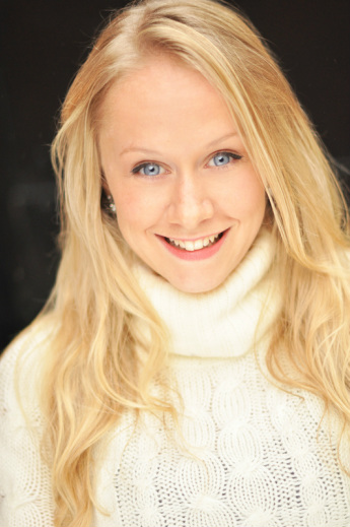
01 Feb 2016
Orpheus in the Underworld, Opera Danube
I’m not sure that St John’s Smith Square was the most appropriate venue for Opera Danube’s latest production: Jacques Offenbach’s satirical frolic, Orpheus in the Underworld.
English Touring Opera are delighted to announce a season of lyric monodramas to tour nationally from October to December. The season features music for solo singer and piano by Argento, Britten, Tippett and Shostakovich with a bold and inventive approach to making opera during social distancing.
This tenth of ten Live from London concerts was in fact a recorded live performance from California. It was no less enjoyable for that, and it was also uplifting to learn that this wasn’t in fact the ‘last’ LfL event that we will be able to enjoy, courtesy of VOCES8 and their fellow vocal ensembles (more below …).
Ever since Wigmore Hall announced their superb series of autumn concerts, all streamed live and available free of charge, I’d been looking forward to this song recital by Ian Bostridge and Imogen Cooper.
Although Stile Antico’s programme article for their Live from London recital introduced their selection from the many treasures of the English Renaissance in the context of the theological debates and upheavals of the Tudor and Elizabethan years, their performance was more evocative of private chamber music than of public liturgy.
Evidently, face masks don’t stifle appreciative “Bravo!”s. And, reducing audience numbers doesn’t lower the volume of such acclamations. For, the audience at Wigmore Hall gave soprano Elizabeth Llewellyn and pianist Simon Lepper a greatly deserved warm reception and hearty response following this lunchtime recital of late-Romantic song.
For this week’s Live from London vocal recital we moved from the home of VOCES8, St Anne and St Agnes in the City of London, to Kings Place, where The Sixteen - who have been associate artists at the venue for some time - presented a programme of music and words bound together by the theme of ‘reflection’.
'Such is your divine Disposation that both you excellently understand, and royally entertaine the Exercise of Musicke.’
‘And there was war in heaven: Michael and his angels fought against the dragon; and the dragon fought and his angels, And prevailed not; neither was their place found any more in heaven … that old serpent … Satan, which deceiveth the whole world: he was cast out into the earth, and his angels were cast out with him.’
There was never any doubt that the fifth of the twelve Met Stars Live in Concert broadcasts was going to be a palpably intense and vivid event, as well as a musically stunning and theatrically enervating experience.
‘Love’ was the theme for this Live from London performance by Apollo5. Given the complexity and diversity of that human emotion, and Apollo5’s reputation for versatility and diverse repertoire, ranging from Renaissance choral music to jazz, from contemporary classical works to popular song, it was no surprise that their programme spanned 500 years and several musical styles.
The Academy of St Martin in the Fields have titled their autumn series of eight concerts - which are taking place at 5pm and 7.30pm on two Saturdays each month at their home venue in Trafalgar Square, and being filmed for streaming the following Thursday - ‘re:connect’.
The London Symphony Orchestra opened their Autumn 2020 season with a homage to Oliver Knussen, who died at the age of 66 in July 2018. The programme traced a national musical lineage through the twentieth century, from Britten to Knussen, on to Mark-Anthony Turnage, and entwining the LSO and Rattle too.
With the Live from London digital vocal festival entering the second half of the series, the festival’s host, VOCES8, returned to their home at St Annes and St Agnes in the City of London to present a sequence of ‘Choral Dances’ - vocal music inspired by dance, embracing diverse genres from the Renaissance madrigal to swing jazz.
Just a few unison string wriggles from the opening of Mozart’s overture to Le nozze di Figaro are enough to make any opera-lover perch on the edge of their seat, in excited anticipation of the drama in music to come, so there could be no other curtain-raiser for this Gala Concert at the Royal Opera House, the latest instalment from ‘their House’ to ‘our houses’.
"Before the ending of the day, creator of all things, we pray that, with your accustomed mercy, you may watch over us."
The doors at The Metropolitan Opera will not open to live audiences until 2021 at the earliest, and the likelihood of normal operatic life resuming in cities around the world looks but a distant dream at present. But, while we may not be invited from our homes into the opera house for some time yet, with its free daily screenings of past productions and its pay-per-view Met Stars Live in Concert series, the Met continues to bring opera into our homes.
Music-making at this year’s Grange Festival Opera may have fallen silent in June and July, but the country house and extensive grounds of The Grange provided an ideal setting for a weekend of twelve specially conceived ‘promenade’ performances encompassing music and dance.
There’s a “slide of harmony” and “all the bones leave your body at that moment and you collapse to the floor, it’s so extraordinary.”
“Music for a while, shall all your cares beguile.”
The hum of bees rising from myriad scented blooms; gentle strains of birdsong; the cheerful chatter of picnickers beside a still lake; decorous thwacks of leather on willow; song and music floating through the warm evening air.

I’m not sure that St John’s Smith Square was the most appropriate venue for Opera Danube’s latest production: Jacques Offenbach’s satirical frolic, Orpheus in the Underworld.
The company continues its laudable dual mission to facilitate the burgeoning careers of recently graduated young singers and to resurrect the frivolous blend of the grotesque and the erotic, the preposterous and the satirical, which characterises the world of operetta. But, the imposing elegance of St John’s, with its corner towers, monumental pediments and lofty spacious interior — scarlet curtain, dark timber gallery, giant white Corinthian columns and barrel-vaulted roof — made an odd backdrop for this madcap, and at times maniacal, journey with Orpheus and the amoral Olympian deities to the Underworld, courtesy of Simon Butteriss’s adaptation of Offenbach’s opera bouffe.
The tale was swiftly told and the major numbers preserved, with several of the operetta’s ‘supplementary numbers’ included in the final Act — Styx’s ‘I was a King’, the ‘Fly Duet’ for Eurydice and Jupiter, and the final ‘Hymn to Bacchus’ for Eurydice and the Chorus — presumably to allow further opportunity for comic excess. At times, though, the burlesque veered dangerously close to pantomime farce. Offenbach’s satire is a sophisticated parody on a revered Classical legend — a myth which lies at the heart of the ‘birth of opera’ itself. A domestic squabble between disenchanted lovers, the vulgar Eurydice and boorish Orpheus, results in the latter reluctantly (coerced by Public Opinion) heading down to Hades to seek out his wife who has run off with the shepherd Aristaeus (the disguised, lecherous Pluto). This barbed ridicule combines with sharp mockery of the wooden performances of Classical drama at the Comédie-Française in Offenbach’s contemporary Paris, and biting critique of the social and political scandals of the Second French Empire. It’s a work which needs charm and elegance to counter the buffoonery, qualities which Butteriss and movement director Lauren Zolezzi rather overlooked in favour of zany horseplay.
 William Morgan (Orpheus) [Photo by Laurent Compagnon]
William Morgan (Orpheus) [Photo by Laurent Compagnon]
Butteriss wore many hats in preparing and performing this production: in addition to directing the young cast, he penned the expeditious spoken dialogue, adapted some of the lyrics (J.R. Planché’s translation was used), served as a smooth-tongued narrator, sang the role of Jupiter with stylish verve, and imitated a bluebottle. An experienced ‘man of the theatre’ — director, translator, actor and presenter, singer — he was a relaxed and debonair presence amid the comic antics, swapping evening-dress for silk dressing-gown, then sporting black tights and outsized visor to impersonate a buzzing insect. Occasionally Butteriss strayed a bit too close to the camp territory of Kenneth Williams or John Inman, but he judiciously held back; a wicked sense of fun was tempered by the wisdom of experience.
Among the cast, sopranos Emily Vine and Hannah Sawle stood out. As a soubrettish Eurydice, Vine span a beautiful line and had no trouble hitting the highs, while looking equally classy in Greek tunic and sparkling evening gown. Sawle sang with impressive focus and bright tone, as the categorically unchaste Diana, and was a strong presence in the ensembles. William Morgan proved that his fingers are as nimble as his vocal chords, giving a creditable — if rather hasty — rendition of the overture’s renowned violin solo; despite his musical acrobatics — he twirled impetuously around the haughty Eurydice and slid along the floor on his back, with no obvious negative effect on intonation or finger-work — Orpheus was unable to impress his indifferent wife. But, the multi-tasking — and the overly boisterous characterisation — did somewhat diminish the refinement of his vocal delivery.
Mezzo-soprano Kathy Steffan quietened the agitation as a prim Juno and the pompous Public Opinion, and revealed a wide vocal range and sure intonation. As John Styx, attired in a fluffy, grey onesie — a sort of one-headed Cerberus in a jumpsuit — Matthew Buswell demonstrated richness and variety of tone but his tuning was less secure. Tenor Tristan Stocks gambolled manically as Mercury, but couldn’t quite get his tongue around the rapid patter of his aria. In contrast, Jan Capinski’s diction was excellent; he was a stentorian Pluto/Aristaeus and a persuasive stage presence, particularly in the ensembles, where there was not a hint of the uncertainty about the text which seemed to afflict one or two of his colleagues on occasion. Felicity Buckland completed the cast as a charming Cupid.
Conductor Oliver Gooch led the excellent Orpheus Sinfonia. There was much sensitive string playing and clarinettists Rosemary Taylor and Joseph Shiner added a smooth suavity, a soothing counterpart to the hectic activity on stage (which was deftly choreographed by Zolezzi). The energetic contribution of percussionist Timothy Evans did much to swell the sound, adding excitement and verve at the climactic moments. Gooch swept proceedings along and took the singers with him, although at times the tempo seemed to run away with itself — the ‘Can Can’ went at such a lick that the cast struggled to deliver their high kicks.
Opera Danube’s ambitions are certainly praiseworthy, and artistic director Andrew Dickinson, who welcomed us to this matinee performance, deserves commendation for his aim to ‘showcase’ the work of gifted young professionals through performances of operettas which have the ‘fizz and exuberant quality … so suited to the ambition of emerging talent’. All the more so because it’s all done on a shoe-string. This was a performance of irrepressible vivacity and jollity; just the thing for a Sunday afternoon in dreary January, even if the froth and bubbles did overflow.
Claire Seymour
Cast and production information:
Orpheus: William Morgan, Eurydice: Emily Vine, Public Opinion/Juno: Kathy Steffan, Pluto/Aristaeus: Jan Capinski, Diana: Hannah Sawle, Cupid: Felicity Buckland, Mercury: Tristan Stocks, Mars/John Styx: Matthew Buswell; Director/Narrator: Simon Butteriss; Conductor: Oliver Gooch, Lauren Zolezzi: Choreographer, Orpheus Sinfonia. St John’s Smith Square, London, Sunday 31st January 2016.